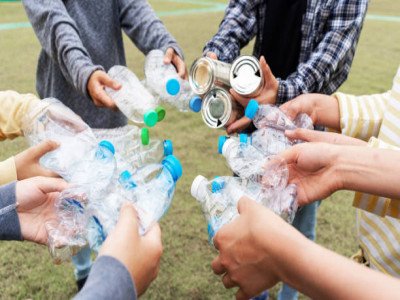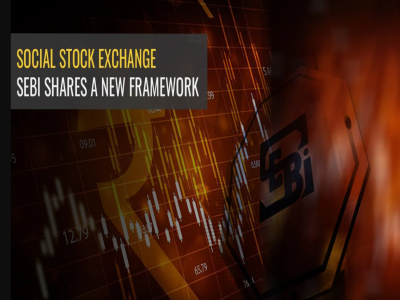
Environmental Education For Younger Generation!
ESSENTIAL TO EDUCATE THE YOUNGER GENERATION ABOUT SUSTAINABILITY IN ORDER TO PAVE THE WAY FOR A MORE ENVIRONMENTALLY FRIENDLY FUTURE
Today's young generation holds the key to our nation's future and serves as the driving force behind societal progress. They have consistently taken up the responsibility of leading ground breaking movements and have emerged as the catalysts of change. These bright minds have inspired us with their unwavering determination to stand tall in the face of adversity, breaking down barriers of class and religion, and uniting the world to achieve the seemingly impossible. Notable individuals like Swedish environmental activist Greta Thunberg and Nobel laureate Malala Yousafzai have made it evident through their work that the next generation is the most crucial and deeply impacted stakeholder when it comes to shaping the global future and addressing climate change. However, today's youth is inheriting a planet that has been significantly affected by the actions of previous generations, particularly in terms of plastic pollution.
Plastic has become an integral part of our daily lives due to its versatility, revolutionizing industries ranging from healthcare and defense to aerospace and construction. However, it has also emerged as one of the most pressing environmental challenges we face. Excessive consumption of plastic and inadequate waste management practices have resulted in the obstruction of rivers, overflowing landfills, and the endangerment of marine habitats.
The root cause of plastic's environmental impact lies in the lack of awareness regarding the value of used plastic. Insufficient segregation and improper disposal methods have only exacerbated the situation. Many people fail to realize that used plastic is a valuable resource that can be recycled into higher-value products. For instance, PET bottles, which can be transformed into apparel mad market it. Research indicates that over 80% of littering is intentional and carried out by humans. Therefore, there is an urgent need to bring about a behavioural shift in how we use, handle, and recycle plastic waste.
It is crucial to raise awareness among people, especially the younger generation, about the advantages of plastic recycling. We must encourage a change in behavior towards proper disposal and repurposing of plastic in order to contribute to a more sustainable future. Parents should instill these habits in their children from a young age, just as they teach them life skills. Educating children about segregating and recycling plastic is equally important. Nowadays, there are various specially designed activities that teach children to generate less waste and reuse materials, such as creating toys from scrap, promoting recycling through cartoons, video games, and books on the environment and recycling.
By instilling these habits early on, we can shape the thoughts and actions of children for the rest of their lives. A recent example of this was observed during the FIFA 2022 World Cup in Qatar, where Japanese fans gained global admiration by cleaning the stadium after the match against Germany. In numerous viral videos, Japanese fans could be heard saying, "We can't leave a place without making it clean. It's a part of our education, everyday learning."
Introducing sustainable education at a young age allows children to develop a multitude of real-world skills that will enable them to make a positive impact on the planet. Additionally, it is crucial to educate young people about plastic recycling, emphasize the benefits of existing recycling programs, and introduce new initiatives.
Some universities offer undergraduate and graduate-level courses in Environmental Engineering, Polymer Science, or Polymer Engineering, providing students with the opportunity to explore environmental issues, engage in problem-solving, and take action to improve the environment. Manufacturers and students can utilize these course materials to gain a deeper understanding of the processes involved in plastic recycling.
To cultivate a circular economy, it is crucial to empower young individuals with the necessary knowledge and tools. By educating them and encouraging innovative thinking, we can instill a sense of responsibility and drive for change. One way to achieve this is by raising awareness among the youth about the importance of treating used plastic as a valuable resource. By involving young minds in the process, organizations can break free from conventional norms and foster a sustainable mind-set. This will enable them to implement effective strategies and contribute to building a greener planet for generations to come.








